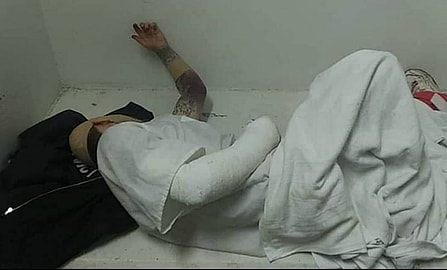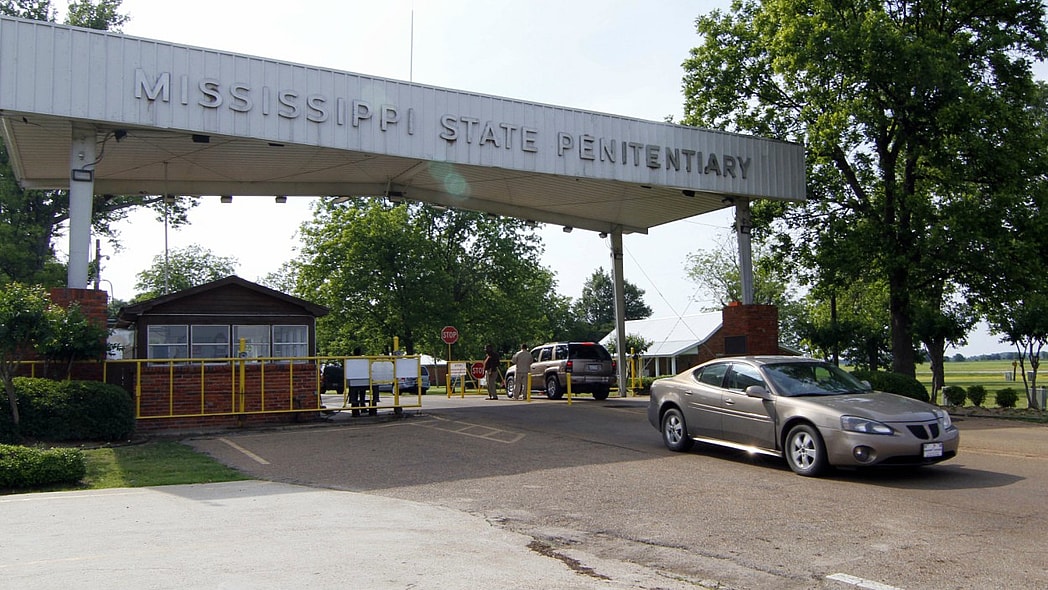Since Dec. 29, uprisings at three Mississippi prison facilities have left five prisoners killed, according to USA Today. Of two others that went missing, one is in custody and another is still at-large. The chain of events resulted in not only deaths, but many others injured leaving the state’s prison system on lockdown pending further investigation.
READ MORE: Kodak Black allegedly involved in prison fight, may have assaulted a guard
Officials suspect that the uprising was the result of gang violence. However, local advocates like, Rukia Lumumba, think otherwise. She believes that the well-documented lack of funding and horrific living conditions within the Mississippi prison system may have been the core of the conflict.
#WeAreWithYou https://t.co/aNeI9ZfbkZ
— Rukia Lumumba (@RukiaLumumba) January 8, 2020
Lumumba is a Jackson, Mississippi native and founder of People’s Advocacy Institute. She also has a long history of transformative justice work and so she understands that there are a myriad of dynamics at work.
Lumumba shared her initial response to the prison uprising with theGrio stating, “People are at their breaking point, the conditions are so horrific inside, that the conditions have caused the violence.” She also feared possible retaliation against prisoners by Mississippi Department of Corrections for speaking out.
“If people are forced to live in cages, that are put in place to break a person, then escalation can’t be too far behind”, which in this case resulted in violence, Lumumba said.

Lumumba works with numerous organizations, that “are really focusing on litigation and pressuring the federal government to actually push the state of Mississippi to make the reforms that are necessary to ensure that people are getting adequate housing, are treated properly, and offered better staffing, better training.”
She is not the only one raising her voice.
Danyelle Holmes, an advocate of the Mississippi Poor People’s Campaign led a rally on Jan. 7 at the Mississippi State Capitol crafted for families of the incarcerated, in response to the recent uprising.
“Families were terrified to speak in regards to their loved ones,” Holmes told theGrio. Many are so afraid of retaliation for speaking out, she says, that they have backed away in fear of what would happen on the inside to those they care about. She adds that “this is a matter of systematic issues that have gone unattended.”
As they await a future response amid the lockdown, Holmes and many other rally attendees, project the sentiment that the inmates “deserve to be treated with dignity and respect” and that they are merely fighting for their loved one’s humanity and rights.
Amanda Hamilton, the mother of a son in a Mississippi prison, said the “prisoners are merely doing what the guards allow them to do.” The lack of funding and inadequate work of correctional officers is a huge portion of the unexpected bloodbath within the Mississippi prison system.
With the uprising occurring in three prisons; the Mississippi State Prison at Parchman, where three died; Chickasaw County Regional Correctional Facility, where one was killed and South Mississippi Correctional Institution, where one was killed and two were injured, the larger issue that stands statewide are the poor living conditions.
Activists say Mississippi inmates are forced to reside in unfit and outdated conditions ranging from electrical problems, pest-infested clothes, improper nutrition, and even putrid sewage. They emphasize that it is unsurprising that the conditions are the causes of the recent incidents.
READ MORE: Bond hearing set for Mississippi man tried 6 times in shooting deaths of 4 people
With Mississippi having one of the highest incarceration rates in the country, the lack of funding and inhumane living conditions are unacceptable for the betterment and rehabilitation of inmates, the activists say.
Corinne Dorsey is a Grio HBCU Contributing Writer and freshman journalism major with a minor in political science at Howard University. Follow her at @corinne.alecia on Instagram and Twitter at @corinne_dorsey.


